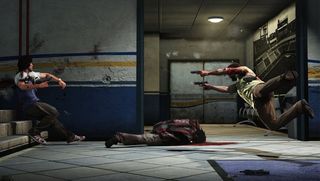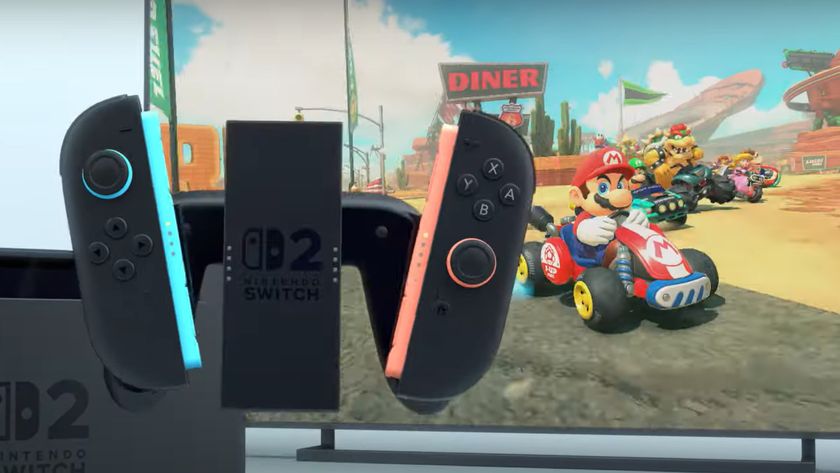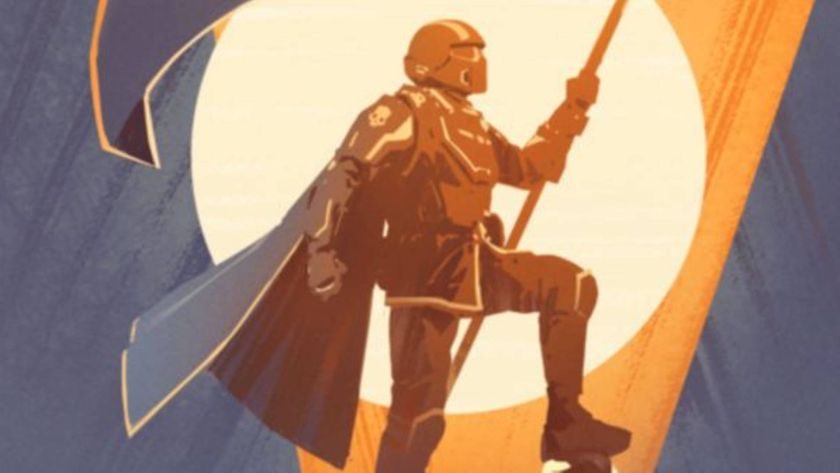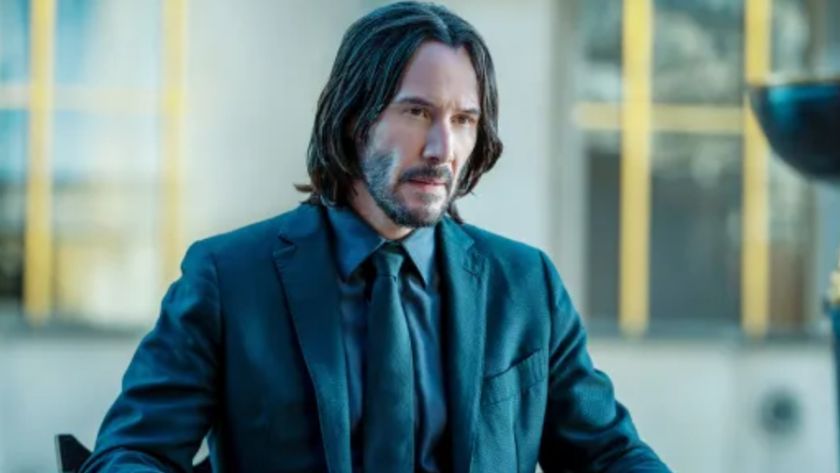How to (not) talk about a massacre
Not all conversations are created equal
It's days like December 14 that make me happy I cover the games industry, and not the real world. Some might say the work I do is trivial, that it's not in keeping with the journalistic maxim of telling the stories that matter. But for me, an emergency is dealing with a from-nowhere announcement of a new gaming handheld, at 8 p.m., on a Sunday, and then rustling up follow-on stories to satisfy reader interest (which makes money for Future PLC). What it doesn't entail is writing about dead kids. Perhaps avoiding that type of reporting reflects poorly on me, exposes a weakness of character or some such. But at the end of the day, I haven't made money off a massacre and I'm pretty OK with that.
Still, I find it amusing, in that unmoored-and-grasping-for-meaning sense of the word, to think about how GamesRadar might have reported last month's Sandy Hook Elementary shooting. "The Top 7... Defensive maneuvers taken by Sandy Hook Elementary teachers," "Sandy Hook Elementary - 9 reasons we're excited for tomorrow's coroner report," "Sandy Hook Elementary memes - The best images and eulogies we've seen." I can actually do this all day; it's following the formula of how entertainment websites like GamesRadar report the news that doesn't matter.

In the weeks since, a number of valid opportunities to talk about gun violence and video games have popped up--ones outside the already-occurring conversation. Topical current events like when the National Rifle Association threw games--which is to say, that old "callous, corrupt, and corrupting shadow industry"--under the bus to divert the conversation away from gun control. Or when SouthingtonSOS announced (and then canceled) its video game buyback-and-burning program, also as a way to divert the conversation away from gun control. But again, me writing about dead kids? Yeah, no thanks.
I'd probably have kept out of it altogether, had I not gone with Coop, Lucas, and Lorenzo to Phillies Authentic Cheesesteaks on Tuesday. I'll spare you all the Yelp treatment and just say that we were there eating, you know, cheesesteaks, and sort of watching this outsized plasma screen Phillies has mounted to the wall. On it comes a replay of Piers Morgan's CNN show from Monday.
He's talking to Alex Jones, a buffoon who, from what I can tell, earns his bones by advocating socially conservative positions. In some circles, the encounter was apparently a big deal, and I must admit, the theatrics on that guy are pretty impressive. For instance, when asked whether he knew "which weapon was used in the Oregon shopping mall mass shooting recently?" He responded:
"I understand that all the people who are mentally ill on all the serotonin reuptake inhibitors who play these shoot-'em-up games want to go out and do this. Because there's criminals, I don't lose my rights, Pierce. Because there's criminals, I don't lose my rights."

Alright, so the easy thing to do here would be to take Jones' bait, and in that regard, I'm pretty qualified to do so, on both the mental health and the digital bang-bang fronts. I could have a good time making various points that would really stick it to the NRA and its surrogates, and I'd feel really good about myself, rabble would be roused, etc. etc.
Sign up to the 12DOVE Newsletter
Weekly digests, tales from the communities you love, and more
But if I did that, all it would really do is continue a conversation that shouldn't have been put forth as a serious topic of debate in the first place. It's that point, and not so much gun violence, that's worth having a public discussion about. It's a bit complicated, but here's how I mean:
When this shooting took place, one of the immediate and obvious reactions from the public was, "How could this have happened, yet again?" One popular answer: Sandy Hook shooter Adam Lanza, like many other mass murderers, had access to and used a semi-automatic rifle, which despite having no redeeming social value, are still readily available. The public then takes up arms (figuratively, of course), politicians hear about it, and before you know it, legislation is being passed to restrict the sale of semi-automatic weapons. And that's totally bad news bears for the NRA, which represents the business interests of gun manufacturers.
Now, the NRA can't just argue hunting rights or whatever for a weapon that's just been used to murder 20 kids, because that's not actually a fight you can win, so the next best strategy is to obfuscate the issue. In that, video games make the perfect target. See, the NRA knows that the future of the consumer weapons industry is uncertain because like many other socially conservative issues, gun supporters are dying off without being replaced by a new generation. Why? Because instead of purchasing BB guns and bows-and-arrows for their kids, parents are increasingly turning to, and kids are increasingly asking for, video games.

In that light, the NRA's attempt to shift the conversation away from the immediate threat of gun control and onto the long-term threat of video games is absolutely rational, and actually pretty smart. What's more, the NRA knows that America fetishizes the idea that every voice should be heard, irrespective of whether what's being said is constructive or destructive, pernicious or valid. It also knows that objectivity is defined by whichever subjective voice shouts the loudest, and we all know how much the press loves their objectivity.
All the NRA needs to do is grab the press' ear and out-talk organizations like the Entertainment Software Association (which, having been roped into the issue, is shouting its own message as loudly as its comparatively paltry budget allows) or the National Alliance on Mental Health (which... well, who actually listens to their shrink, anyway?). That done, the topic of gun violence becomes dominated by everything but the guns themselves. It's an opportunistic gambit, plain and simple.
Here's the thing. The press actually really wants to take the NRA's bait. Why? To give folks like Alex Jones a platform to deliver his on-message rhetoric--irrespective of whether that message is constructive or destructive, pernicious or valid--that's just a quick-and-dirty follow-up story. Occasionally, it even blows up and spreads across the Internet, bringing in millions of pageviews. That's great for business.

So you can think of it this way. When Nvidia announced Project Shield earlier this week, we scrambled to dissect the circuitry and pass on any old piece of gossip that had a tinge of plausibility. It's what we do, because our business is entertainment, and if we screw up, the worst that happens is Project Shield becomes a fully functional piece of technology on store shelves. Which is to say, we can do what we do in the way we do it because, ultimately, it just doesn't matter.
However, when the press does the same thing for a massacre, the worst that happens is we end up with more people like Adam Lanza murdering people on a massive scale. You can't talk about a massacre as if it doesn't matter.
The good news is that the conversation that should be happening does appear to be happening, largely (and safely) tucked away from public discourse. This week, representatives from the games and film industries are testifying before the governmental Gun Violence Task Force, led by Vice President Joe Biden. The NRA will also have a turn. Each of these industries will invariably speak from a defensive position, putting forth reasons why they aren't to blame. Perhaps they'll also realize that no one is actually shooting at them.

Ex Nintendo PR managers say the Switch 2 generation is likely to see the retirement of "several of the major developers at Nintendo who we have known for 40 something years"

Helldivers 2 CEO says industry layoffs have seen "very little accountability" from executives who "let go of one third of the company because you made stupid decisions"











